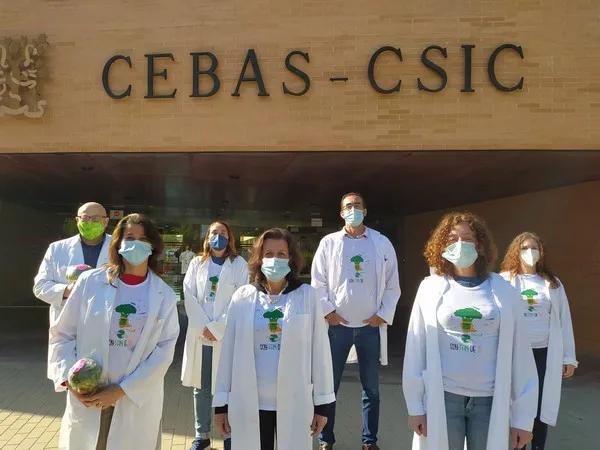+Brócoli, the Spanish association for the promotion of broccoli, and the Institute of Soil Science and Applied Life Sciences CEBAS-CSIC have established a scientific committee after many years of cooperation. The objective of this new advisory body is to provide technical support in the dissemination of the knowledge widely spread among consumers about broccoli, facilitating access to reliable information that directly affects their diet and well-being.
The committee, for example, will provide scientific evidence about which agricultural practices allow producing broccoli with higher nutritional quality, how to handle or cook the product to maintain its quality from the field to the table, or how broccoli consumption benefits our body. “This data is relevant to society in general. Now, more than ever, we see that healthy nutrition and a healthy lifestyle are essential to face diseases and external contamination,” stated Micaela Carvajal and Diego A. Moreno, from CEBAS-CSIC.

A specialized team at the service of society
Micaela Carvajal and Diego A. Moreno are the president and secretary, respectively, of +Brócoli's scientific committee, which is made up of a total of eight professionals who have extensive experience in research and specialties in food technology, agricultural biology, plant physiology and nutrition: M. Carmen Martinez Ballesta (UPCT), Gloria Barzana Gonzalez (CEBAS-CSIC), Cristina Garcia Viguera (CEBAS-CSIC), Paula Periago Bayonas (UPCT), Raul Dominguez Perles (CEBAS-CSIC), and Victoria Rodríguez Moldenhauer (Ana Leonor Escolar Sánchez Pharmacy).
Scientific achievements and new challenges
So far, CEBAS-CSIC and +Brócoli's work has brought to light the great tolerance that the broccoli plant has to resist environmental changes -thanks to its ability to regulate the passage of water through cells-, increased this vegetable's anticancer natural compounds (glucosinolates), and detected how broccoli consumption can help treat obesity, among other things.
Currently, this scientific committee is working to complete the sequencing of the broccoli genome to study its metabolism, and on the development of ingredients that have anti-inflammatory potential to fight the chronic inflammation caused by many diseases.
For more information:
+Brócoli
www.masbrocoli.com
